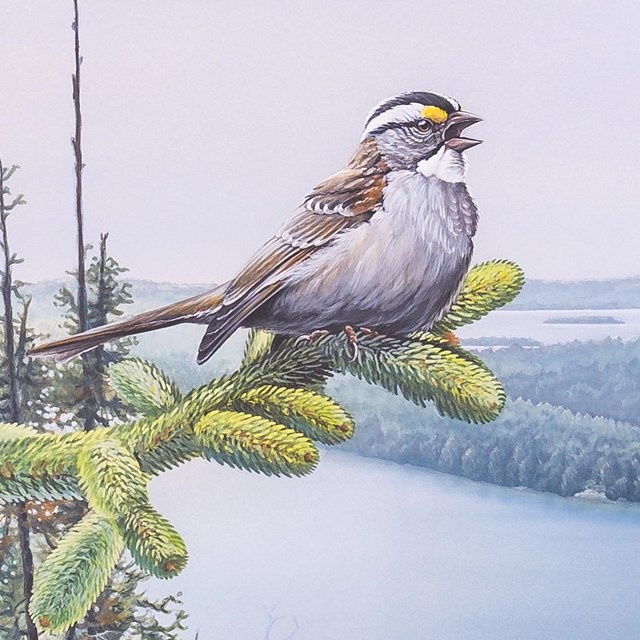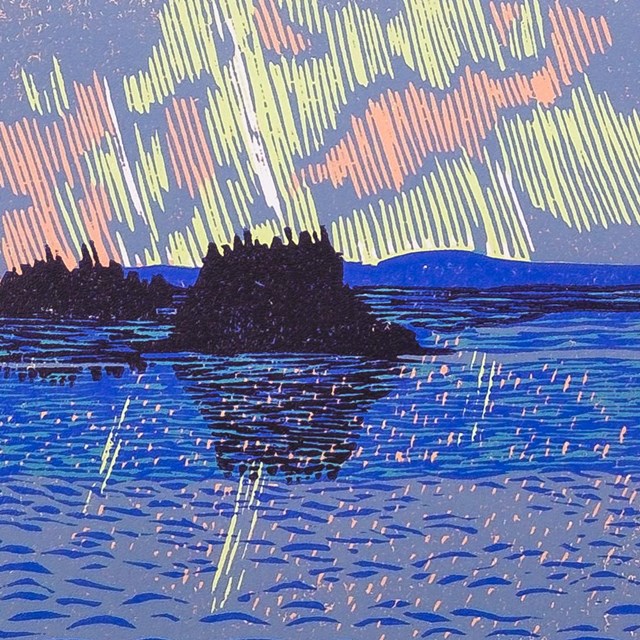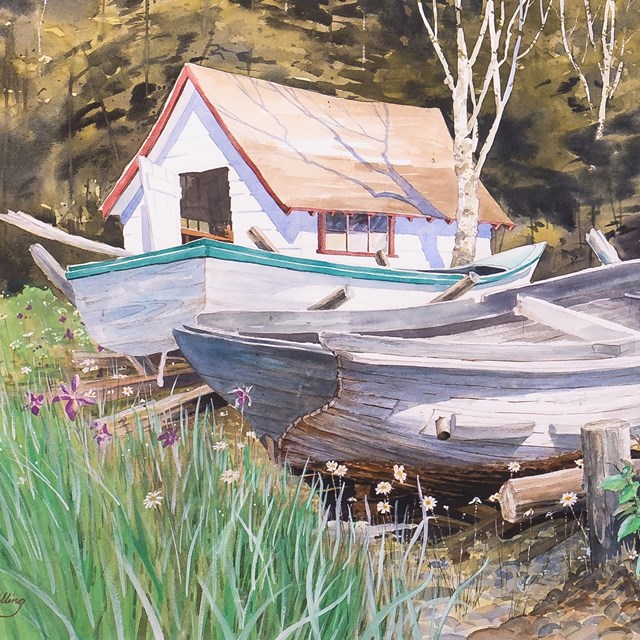People terraform the earth to fit inside it. An island is a type of mind, they say, it’s a type of walking around. Before I came to the island, I left my body's trace, in chalk, on city pavement. I felt an accident of chemtrails. Sweat leaked out of the body. Like a leaky sky out of which ozone oozes over the earth. Here, the sensitive body absorbs more heat, and more than heat. Here, a global warming that is like a general fever rises in the bodies that are already sick of it. Here, the fever reaches its pitch, wild as an idea. What is the shape of this idea? What if a fever can only be expressed in sound, in a feeling, in a frequency beyond the human body—whose susceptibility defines this form of thinking? The thinking is beyond measure, unless the saturation gets through skin, or manages to sound out what it is. A shape. Some background: I came to the island to “get away from it all” but not all islands are ideas. Some islands are only ideas. On the island I was afraid of writing and so I invented the idea that it was a map that I could consult while surrounded by water. Writing is a technology, went the thought. It is a technology that can be as visible as it wants to be. It can be a chemtrail. On the island, I was shocked how much access the world had to me. Even on an island without “technology.” Technosusceptibility means my body is at the center of an orbit of images; the center of a cinema. Here, the water is clear and sliceable as gelatin. A 3D replica subtle enough to go unnoticed. A doppelgänger. The map might allow a savvy user as many sunsets as she wants. It may allow the unsavvy user to envision a world in which marine-cloud brightening saves the island from drying up from too-frequent sunsets. I absorb this idea like a flower photosynthesizes the sun. I don’t remember any of the plants I identified on the island.
Instead, I think to last night, listening for the things G didn’t say, as if there could be. My listening turned into an invention: images surrounded me. I sloughed them off as he spoke. He told me a story about what he tells his daughter before she goes to school—something like you are loved and not I love you; he doesn’t want her to think the love comes from him alone, or that she’s dependent on it. She belongs to a milieu that loves her and she is responsible to it. He feeds her Kashi cereals. He is raising her vegetarian. He insists on knowing me. Later, there is an extended conversation about poets (we are that) and if they matter (to anyone but us) about Plato and the polis, the ideal and the real, the way in which an idea might come back down to earth to “see carelessly,” i.e., be absorbed by the antagonistic fabric of an island invented to get more alone. I try to understand the way G talks to me inscrutably. I don’t really know what he’s thinking. The indeterminacy bothers me. He tells me another story, one he forgets as he goes along. The story is about a woman who gets separated from her group and has to survive a snowstorm alone. She sings herself a song. Instead of helping him tell the story, I wonder Where are my songs. Where are my relatives. I focus on the pauses he gets stuck in as he invents it. I tell him that in my writing, snow is a condition. I tell him that, following Borges, technologists are building the map of the world exactly over the world. You can hardly tell what’s alive. The idea that life is just a replica of life is not a new idea. On the island, a moose and her baby stopped at the cabin window. I must have been crying, or I wasn’t. Crying only makes sense on a mainland, within the terms of a sweating, chemtrail-sensitive body. Rather, I was putting the water on for coffee. The moose and I stared at each other like two militias who did not receive instruction about the enemy. I would not call the gesture infrapolitical, but maybe it was similar to the Kashi cereals or the transposition of the subject from one who is capable of loving into one of passivity—who is loved, but also does not know from where, or why. The moose left and also did not leave. She lay mounds of shit-nuggets near the trees where I pissed at night, not wanting to go further into the woods to the outhouse. On its path, I’d placed two peasant-shaped ceramics I’d bought at a thrift store, for good luck. They were that fiestaware blue. When did they stop making peasant-shaped figurines? By the end of my stay on the island, one’s broke-off hand lay strewn out with the shit-nuggets. In the map of this world, to go beyond representation is to register a body that perceives what falls beyond the spectrum of scientific measurability: the hertz level of sound, the waves beyond the spectrum of light, the shade beyond the gesture of the everyday. There is an ontological gap between what is seen and understood and what is actually felt and known. We know this. Interiors are carved into the earth, pipelines, mines and such. The map articulates an indeterminate world. It takes a heartbeat. It takes echolocation to be the form of relata to an environment in danger of collapse.
But we know this. The circuitousness of memory works across bodies, not as individuals or singular subjects but as they give themselves to each other, losing time. I gave something over to the moose in that moment, or to G in his forgetting, like in that line by Proust, when he told his readers that when they read his novels they are wasting time, losing time, and that in their lost time he is "giving the them back to themselves." I paid attention to the loons, their soundings. It was necessary to concretize lost time in order to continue walking. The lost time got names and shapes: a sugar bowl whose sugar hardened to become fiestaware. The lost time took a shape that exceeded the cubits of the room where I slept. I needed to make it smaller. The lake lapped at the rocks and it was cold. I needed to make it warmer. In Michigan, the island is belted to horizon of Lake Superior and it plays like an ocean. Last night, at a comedy show, a small girl wearing a cape and a haircut of her own making came to our table to give me a flower made from a napkin. Things do not get easier. The world consists of a lack of framing. It says “Jesus loved me when I was an addict” but it does not consider that the table cares. I would not call this hubristic. But there is the slowing down. A wrecking ball collides into a concrete wall and concrete becomes pinches of sand, or grains of glass worlds too small to see through. Then there is the world inside what cannot be seen. There is something beyond it, even, time or something, or a map. Or its double. I am latching on to an idea about the social as if it can be rendered cartographically, by land mass. The grain in my eye brings it back. And I itch. Perceptible and imperceptible auroras are frequent this time of year. Alpine strawberries taste like fruit snacks. Just now a little bunch of something I saved from the island shed a spine on the floor. A few moments before, the pressure in the room set off a object, an antique lamp; it burst in its corner on a bookshelf—there's no wick in it, there's no gas, no nothing, it startled the cat. A few moments before, traffic slowed down long enough to hear a bird. Then another bird. The wind picked up. I scratched my eye.
Return to MJ's Page
Return to the Artist-in-Residence Exhibit



